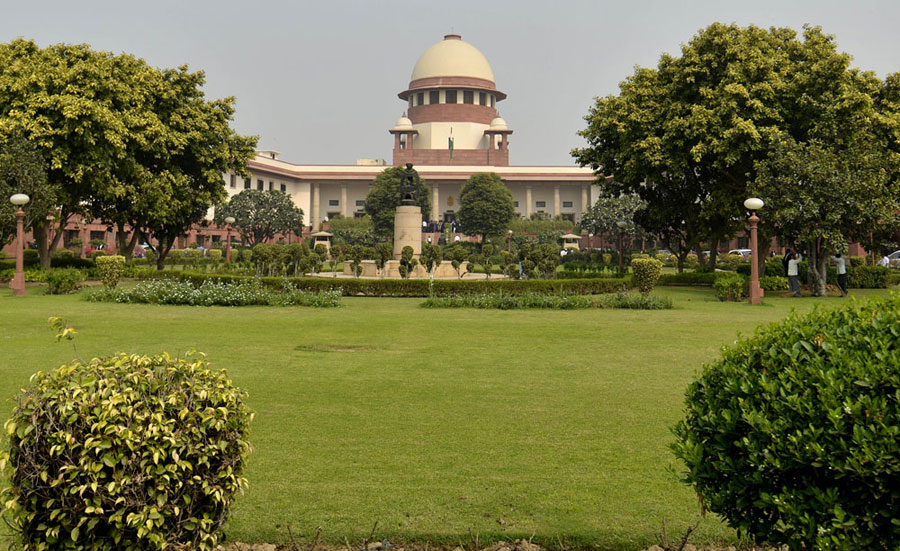The Supreme Court on Wednesday upheld the validity of Aadhaar in a 4:1 majority verdict but limited its scope, jeopardising the Narendra Modi government’s aggressive push to link the scheme to a host of services.
Aadhaar cannot be made mandatory for bank accounts, mobile connections, school admissions, competitive exams or pensions, the five-judge constitution bench of Chief Justice Dipak Misra and Justices A.K. Sikri, A.M. Khanwilkar, D.Y. Chandrachud and Ashok Bhushan ruled.
It struck down Section 57 of the Aadhaar Act, which allowed private entities like telecom companies to demand and use biometric Aadhaar data.
It diluted several other provisions, saying even the authorities cannot store authentication data (such as a person’s spending or movements, as opposed to biometric details, address or photograph) beyond six months, compared with the earlier deadline of five years.
However, the majority judgment held that the Aadhaar Act did not violate individuals’ right to privacy per se and cleared the use of Aadhaar for welfare schemes, income-tax returns and PAN allotment.
Justice D.Y. Chandrachud’s lone dissenting judgment said the Aadhaar Act was liable to be quashed as unconstitutional. He said the Aadhaar bill’s passage as a money bill (bypassing the Rajya Sabha, where the government lacked a majority) amounted to a fraud on the Constitution.
Justice Chandrachud said it was now impossible to live in India without Aadhaar, which he said violated Article 14 (equality). He added that Aadhaar-seeding every database endangered the right to privacy.
But the majority verdict upheld the bill’s passage as a money bill by the Lok Sabha. It observed that the Aadhaar scheme served the public interest by giving dignity to the marginalised sections and reach welfare benefits to them.
“Aadhaar gives dignity to the marginalised. Dignity to the marginalised outweighs privacy,” Justice Sikri, who wrote the majority verdict for himself and Justices Misra and Khanwilkar, said. “One can’t throw the baby out with the bathwater.”
But the 1,448-page judgement clarified that Aadhaar would not be mandatory for opening bank accounts, securing school admissions, or taking exams like the National Eligibility-cum-Entrance Test.
It urged early installation of a robust data protection regime and directed the government not to give Aadhaar numbers to illegal immigrants.
The judgment quashed Section 33(2), which allows disclosure of individuals’ Aadhaar data on the ground of national security under directions from an officer not below joint secretary.
It diluted Section 33(1), saying a district judge authorised to disclose information to an investigating agency must first give a hearing to the citizen concerned.
Justice Bhushan, in his concurring judgment, held that revealing demographic information (name, address, phone number, photograph and the like) for Aadhaar did not violate the right to privacy, arguing an individual revealed such data in connection with other services too.
Both the BJP and the Opposition welcomed the judgment, which former attorney-general Mukul Rohatgi described as “balanced”. The Congress was happy that the Aadhaar scheme, a UPA brainchild, had been retained while most of the “illegal distortions” had been thrown out.
BJP spokesperson Sambit Patra saw a victory for the “pro-poor Modi government”, while finance minister Arun Jaitley called the judgment “historic”.
A batch of 31 petitions, including one from former high court judge K.S. Puttaswamy, had challenged Aadhaar’s constitutionality, portraying the scheme as an invasion of privacy and an excuse to snoop on citizens.












